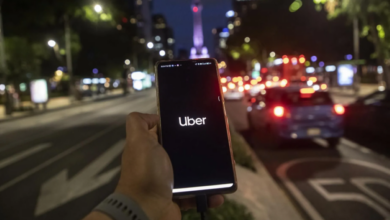Lula da Silva Bets On A South American “Euro”. How Feasible Is It?
The Brazilian president, Luiz Inacio Lula da Silva, and his Argentine counterpart, Alberto Fernández, bring to the table a regional currency that can compete with the Dollar and the Euro.

Photo: Martin Heinlein / DIE LINKE
LatinAmerican Post | Santiago Gómez Hernández
Listen to this article
Leer en español: Lula da Silva le apuesta a un “Euro” sudamericano. ¿Qué tan factible es?
Luiz Inacio Lula da Silva has been in government for less than 1 month and already shows that Latin American integration will be a priority in his government. On his arrival in Buenos Aires within the framework of the CELAC (Community of Latin American and Caribbean States) summit, Lula and his Argentine ally, Alberto Fernández, announced what had been rumored before: the intention to create and promote a South American common currency.
Even though there is still a long way to go for the creation of “sur” (a possible name, according to an interview with the Argentine Minister of Economy, Sergio Massa, in the Financial Times). Although the initiative is from Brazil and Argentina, the proposal will be put the consideration by many other countries.
A common currency for the entire region is part of a series of integration measures that integrationists have longed for years. The idea is to imitate the Euro, the common European currency, and be able to unify most of the countries in the area to have a strong currency that can counterbalance others such as the US dollar, the Euro, or the Yen.
The proposal is not new. Nor is it a measure unique to the left. A couple of years ago, the right-wingers Mauricio Macri and Jair Bolsonaro (predecessors of Alberto Fernández and Lula da Silva, respectively) had considered the option of the “real weight”. But the political changes in the region prevented progress on the issue.
You can also read: Will 2023 be the year of recovery or the end of cryptocurrencies?
Even from the same Pacific Alliance, the possibility of a single currency for Peru, Colombia, Chile, and Mexico was also handled. At the time, the presidents Gustavo Petro and Gabriel Boric (Colombia and Chile, respectively) had considered this proposal.
Boric himself said at the time that "all regional integration initiatives that strengthen the cooperation of our countries seem to me to point in a good direction."
This proposal is an attractive option for countries that do not have their currency or that do not have access to credit in international markets or with fragile currencies. For countries like Ecuador, Venezuela, or Argentina, it can be a great possibility that allows them to have a better monetary policy.
A currency that has a market of more than 400 million inhabitants (in South America) will be able to compete face-to-face with the Euro (346 million), the Yuan (1,412 million), the Rupee 1,408 million) or the US dollar.
A strong currency needs strong monetary policies
Although one of the main benefits of having a strong currency is to increase demand and the market, this alone is not enough. In recent years it has been shown how the national currencies of the majority of South American economies suffer from depreciation with international currencies. Whether it is the Venezuelan bolivar, the Argentine peso, the Colombian peso, the Brazilian real, the Peruvian sol, etc, they have been due to inflationary phenomena, and even hyperinflation. A regional currency will not solve this problem.
To have a strong currency you do not need to have a large market. For this, there are examples of China's strategy of maintaining a weak Yuan to promote exports or the currencies of the Arabian Peninsula, which are more valuable than the dollar.
Then, it will not matter that Brazil, Argentina, Uruguay, Paraguay, and Venezuela (all of Mercosur) come together and create a single currency. Venezuela and Argentina have shown that their monetary policies and their indebtedness have little to do with their currency.
Even the dean of the Faculty of Economics and Business (FEN) of the University of Chile, José De Gregorio, told Infinita radio that Lula and Fernández's proposal is “the most absurd thing I have ever heard. And hardly credible
Before thinking about producing a regional currency, fiscal policies must be unified and monetary autonomy ceded. Likewise, it will be necessary for the economies participating in the project to be similar since the single currency will be as strong as its strongest economy, and as weak as its weakest economy. Cases like the Greek crisis are an example. For this, the countries of the region will have to manage similar taxes at the top and this will affect the most vulnerable citizens in each economy.





